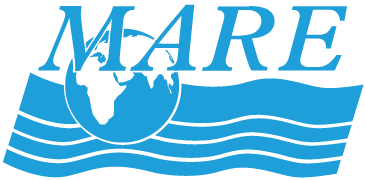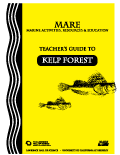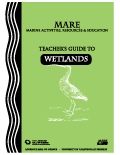Author: juliethierman
Climate & Data Activities
Fostering student inquiry of climate science with real-time data. The activities in this collection are based on the principle that real-time environmental data is a valuable tool for providing students with opportunities for self-directed exploration of the natural world. Students engaging in these activities will gain a deeper understanding of carbon cycling, ocean acidification, and […]
Ocean Sciences Curriculum Sequence for Grades 6–8
Climate change is arguably the defining environmental issue of our generation. It is thus increasingly necessary for every member of the global community to understand the basic underlying science of Earth’s climate system and how it is changing in order to make informed, evidence-based decisions about how we will respond individually and as a society. […]
Ocean Sciences Curriculum Sequence for Grades 3–5
Overview The Ocean Sciences Curriculum Sequence for Grades 3–5 engages students in exploring ocean currents, features of the ocean floor, ocean habitats, ocean organism diversity, ocean food webs, adaptations to the ocean environment, and human interconnections with the ocean including exploration, technology, pollution and solutions. This upper elementary curriculum prepares students to understand the climate ocean connection […]
5th Grade–Open Ocean
This curriculum (MARE Teachers’ Guide to Open Ocean and GEMS Ocean Currents and Only One Ocean) includes activities for students to examine the causes and effects of connected ocean basins and ocean currents, make evidence-based explanations for animal adaptations, and work with real-data to design solutions for sustainable fisheries.
4th Grade–Kelp Forest
Download the Kelp Forest Teacher Guide Now Gazing from shore at the gently swaying surface of a kelp forest canopy, it’s difficult to imagine the activity below. But from holdfast to blade this algal forest is home to bizarre invertebrates and fish of every imaginable color, size, and form. It’s also the unique home of […]
3rd Grade–Wetlands
This curriculum includes activities that investigate the relative densities of water, map organism foodweb connections, use data analysis to examine habitat resource use, and experimental design to learn more about animal adaptations.
ACLIPSE Overview
The ACLIPSE university course instructional materials, and associated grades 6-12 teacher professional learning opportunities and materials, engage participants in climate science activities while using data in authentic and locally-relevant ways. The curriculum course, and teacher professional learning opportunities use climate science as the context for teaching about and applying current teaching and learning research, as […]
Higher Education
MARE has a number of programs and projects designed to help scientists and STEM (science, technology, engineering, mathematics) faculty share their knowledge and skills with their college students, the public, and K-12 classrooms, to provide mechanisms to address education and public outreach needs, and to share the broader impact of their research. Some opportunities include: […]
Informal Education
MARE has programs and projects for informal educators to share and reflect on their teaching practice in informal science environments. Communicating Sciences College Courses NSF’s emphasis on educational outreach and the broader impact of research led to the development of the Communicating Ocean Sciences college courses, COSIA (Communicating Ocean Sciences to Informal Audiences) and Communicating Climate […]




